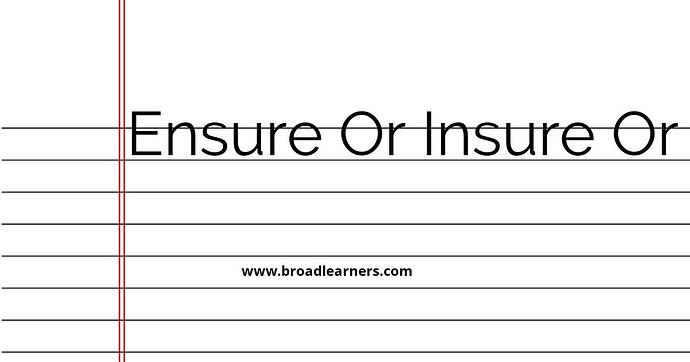'Ensure', 'insure', and 'assure' are commonly confused words in English grammar. Understanding the difference between 'ensure', 'insure', and 'assure' is important to use them correctly in written and spoken English.
'Ensure' means to make certain or guarantee something will happen or be done. It is used to emphasize the importance of taking necessary steps to ensure a desired outcome.
'Insure' means to provide or obtain insurance coverage or protection against potential loss or damage. It is typically used in the context of financial or risk management.
'Assure' means to give confidence or make someone feel certain about something. It is used to reassure or give a sense of security to someone.
Let's take a closer look at the meanings and usage of 'ensure', 'insure', and 'assure'.
| 'Ensure' | 'Insure' | 'Assure' |
|---|---|---|
| The word 'ensure' is used to make certain or guarantee something will happen or be done. | The word 'insure' is used to provide or obtain insurance coverage or protection against potential loss or damage. | The word 'assure' is used to give confidence or make someone feel certain about something. |
|
|
|
To remember the difference between 'ensure', 'insure', and 'assure', it can be helpful to associate 'ensure' with guaranteeing something will happen or be done, 'insure' with obtaining insurance coverage or protection, and 'assure' with giving confidence or reassurance.
Here are some examples of correct usage:
- I will ensure that the documents are properly filed. (making certain something is done)
- She insured her jewelry against theft and damage. (obtaining insurance coverage)
- I assure you that the package will arrive on time. (giving confidence or reassurance)
Remembering the correct usage of 'ensure', 'insure', and 'assure' will improve your grammar and communication skills.
